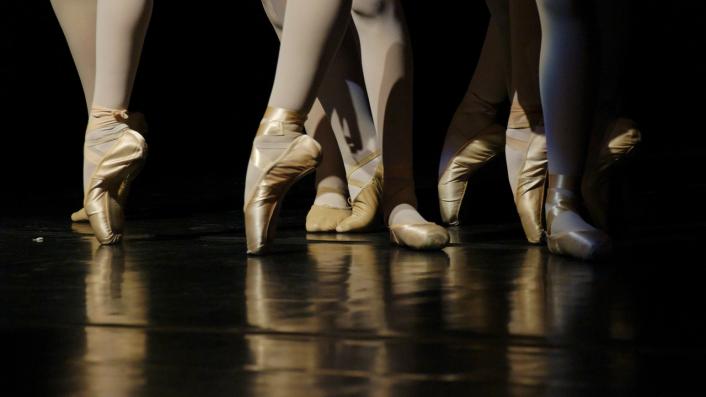Celebrating Our New Lead Schools for Music Education in Cheshire West and Wirral
On Thursday, 26th June, Edsential proudly welcomed six schools from...30 Jun 2025

Pupils have stressed the importance of the arts – ministers must take action before it’s too late.
Whatever our background or heritage, art forms move and inspire us, enrich our lives and teach us what it means to be human. From a favourite poem to a piece of music or a child’s painting, culture and the arts help us to make sense of the world, understand one another and articulate emotions. And school is where many of us will first encounter the arts. Whether that’s exploring a Shakespeare play or learning about visual arts, music, dance or film, our school experiences can define how we feel about those things for the rest of our lives.
Schools help to mould young people into the adults they will become. Whatever side of the political spectrum we are on, we know that ensuring a broad and balanced mixture of learning opportunities and experiences is a good thing and it’s at the heart of what all schools want to provide for their students.
And yet new research provides compelling evidence about the challenges schools face in making that a reality.
Funded by Arts Council England, and conducted in secondary and special schools in England, the study analysed 6,000 responses from young people aged 14 to 18 about the place and importance of cultural education. The results tell us that students and teachers think that studying arts subjects is a critical part of school life. But it also tells us that they feel that arts and cultural education is less valued, and therefore, less valuable.
The unintended consequence of things like emphasising the Stem subjects, focusing school performance measurements around progress in some subjects and not others, and Russell Group universities defining a list of subjects that keep student options open but exclude arts subjects is that we are seeing a sharp decline in the number of arts teachers and hours spent teaching arts subjects in state-funded schools. We are unintentionally sending a message to our young people that arts and cultural education don’t count.
It’s been shown over and over again the dramatic effect that the arts can have on a child’s confidence, attitude to learning and ultimately their life chances. As practitioners, we have no doubt that arts and cultural education should be an entitlement for every child – but today’s research, Time to Listen, gives an even sharper focus to the impact that a continued decline in arts and cultural provision in schools will have on future generations.
The economic contribution of the creative industries is well known. What is less well understood is the impact that arts subjects have on developing resilience, tolerance, empathy and emotional intelligence. Amidst growing concern about the wellbeing of young people, one of the most revealing aspects of the research was the consistency with which young people told us that arts lessons are the only place where they feel able to explore and express their own thoughts, opinions and ideas. With no definitive right or wrong answers, arts subjects allow young people the freedom to develop their own identities and explore alternative ideas, approaches and other points of view, as well as how to articulate arguments of their own. Often referred to as “soft” skills, these are arguably some of the most important tools in any young person’s armoury, preparing them for life beyond school and encouraging them to contribute to their communities as well as to the wider world.
Perhaps more alarmingly, respondents overwhelmingly talked about the arts as a release valve for some of the pressures they experience at school or at home. Every day we hear about the increasing burdens being placed on children and young people and the impact that this is having on their long-term wellbeing and mental health. Arts subjects provide many young people with a crucial outlet to release some of that pressure and provide a way of processing and articulating difficult emotions.
The findings also showed that more than a third of all respondents would not access arts and cultural opportunities if they didn’t happen in school. This underlines the essential role that schools and teachers play in brokering arts experiences. But as the opportunity gap between students at state-funded and independent schools continues to grow, this also becomes a matter of social justice. Without access to art and culture at school, large numbers of children will miss out on this chance to broaden their horizons, see themselves and the world in new ways and explore who they are and what they might become.
Making the case for the arts and culture in education feels even more urgent when you consider that international demand for our work is at an all-time high. Governments worldwide seek to import our expertise into their own education systems to nurture a more creative, emotionally literate workforce for the future. The Programme for International Student Assessment, the body that ranks education systems globally, has also notably announced that its next round of league tables will measure creativity alongside maths and science.
There are changing and challenging times ahead and we owe it to the next generation to give them every chance to navigate those choppy waters successfully.
We’ve called on ministers to listen to what young people are saying and to make a change before it is too late. We ask them to place the same value on arts subjects as they do on others. And we will call upon them to introduce an arts premium for schools to ensure that all children, regardless of background and geography, can benefit from the opportunities to learn and grow through arts subjects at school.
It’s Time to Listen and it’s time to change.
Taken from: https://www.tes.com/news/we-must-listen-pupils-about-arts-education